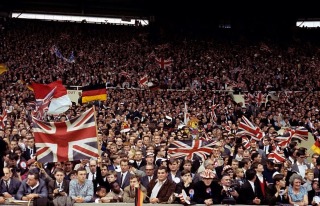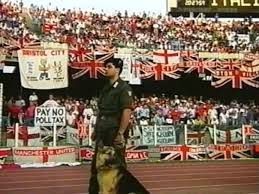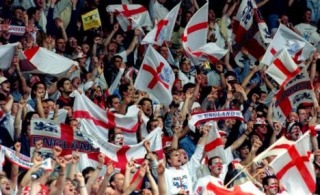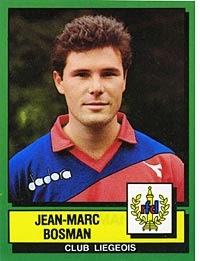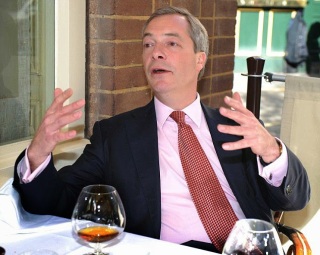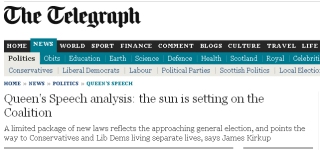With the England football team’s, not entirely unexpected, dismal early exit from the World Cup in Brazil, we see the usual media post-mortem analysis of where it all went wrong. Two themes always emerge when attempting to analyse what went wrong; that footballers are paid too much and that there are too many foreigners in English football.
However given England’s international record since 1950 both theories can be seen to be clear fallacies. 1966 aside, England’s record in international tournaments has generally been very poor. England has never reached a final on foreign soil and they have won only five knockout games in any World Cup played outside their own country; none of them against any so-called ‘football superpowers’ such as Germany or Italy.
This poor record occurred during the maximum wage era – ended by the landmark Eastham case in 1963 – as well as during the far more prosperous English Premier League (EPL) incarnation. And no one could argue that a half-fit Luis Suarez playing for Uruguay against England only showed passion because he is on minimum wage when playing for Liverpool. Thus that the fault lies with players’ lack of passion due to being paid too much doesn’t stand up to scrutiny.
The other criticism is of too many foreigners in the EPL (foreign players currently make up over 60%). However when the English leagues consisted of almost only British players during the ’70’s and ’80’s it’s worth noting England failed to qualify for the World Cup in 1974 and 1978, and as for the European Championships in 1988…well that’s best forgotten.
England’s record has been largely abysmal regardless of how many or how few foreigners play in the English game. And as Soccernomics argues England’s record has actually improved since 1992 (the beginning of the EPL) – averaging 1.69 points per game up from 1.4 per game pre-1992.
Yet the obvious fallacies behind the proposed reasons of England’s poor international record doesn’t stop the likes of the ‘award winning‘ Telegraph football correspondent Henry Winter putting forward ‘solutions’ to England’s perennial abject performances. He complains bitterly:
When England were blown away by the fast, intelligent, ruthless movement of Germany in Bloemfontein at the last World Cup four years ago, this newspaper carried a “10-point plan to save the face of English football following shame in South Africa”. Only three of the points have been achieved, leaving little surprise that England continue to lag behind more sophisticated footballing nations.
And one of his solutions that was not adopted?
The issue of quotas, suggested in Point Eight of “Six plus five adds up”, focused on the influx of foreigners into the Premier League and the blocking of the pathway for younger English players, an issue at the heart of Greg Dyke’s FA commission.
It seems to have escaped the ‘award winning’ Mr Winter’s attention that such quotas, even if they worked, are against EU law. And nor is this an obscure EU ruling. Instead it is one of the most well known infamous moments in English football history – the Bosman ruling. And not just Bosman but also ECJ judgements regarding Dona, Kolpak and Simutenkov.
One of the consequences of Bosman in particular was that it prohibited domestic leagues in EU member states, and UEFA, from imposing quotas on foreign players to the extent that they discriminated against other EU states. The judgement was hardly a surprise given that free movement of people is one of the fundamental freedoms of the Single Market – based on what is now Article 45 (2) of the Lisbon Treaty which established the rights of EU nationals to work on a non-discriminatory basis in any Member State.
Previously UEFA had a rule which prohibited teams in its competitions, namely the Champions League, Cup Winners’ Cup and UEFA Cup, from naming more than three “foreign” players in their squads for any game – a rule which had led to the embarrassing defeat by Barcelona of Manchester United in 1994. After the ruling, quotas could only be applied to non EU-players only.
Mr Winter should (and I suspect does) know better but it’s revealing that he fails to acknowledge this. Thus it appears that it is not just Telegraph political correspondents who have myopia when it comes to the UK’s membership of the EU but football ones as well.
The Bosman ruling had profound consequences right across the EU – in all sports but one of its greatest impacts was felt in the Premier League. To maybe understand why, we need to revisit the consequences of the establishment of the Premier League in the early ’90s.
The Hillsborough disaster in 1989 was a watershed in British sport and it essentially resulted in two main legacies – safer stadiums and its more dubious cousin the birth of the Premier League.
Football in the UK has largely been governed since the 19th century by an uneasy alliance between two bodies; the Football Association (FA) and the Football League (FL).
The FA can rightly claim to be the first such football body in the world which not only first codified the rules but helped develop the popularity of the game. And, not unusually for a Victorian sporting institution, it has always retained an amateur ethos – a determination to remain a “purity” different from commercial interests. It was a public school cocooned world.
This ‘purity’ was challenged in the late 19th century by the establishment of the hugely popular football league, a league competition led mainly by the rise of working-class northern clubs who could not afford such luxuries as ‘amateurism’. Professionals they had to be out of necessity. In very simplistic terms such a divide between the FA and the FL can be seen as a north/south one, not too dissimilar to the divide which was more explicitly expressed in the form of two sets of codes in rugby.
Most other countries in the world which started from scratch avoided this seperation of the governing body and the League. Instead they established a single football federation governing the lot…this mistake, not replicated by other countries, would come back to haunt the UK.
From the start the FL was concerned about ensuring a degree of equality between its member clubs – on almost a socialist model it wanted to ensure that money was divided equally within the whole league structure on the basic premise that every club needed each other for a basic competition to exist. A model that largely worked for circa 100 years.
But with the influx of television money in the 1980s the bigger clubs (then known as the big five) in the top division wanted to break away from the FL’s rigid formula of distributing money throughout the leagues and instead keep all the money for themselves. Despite initial resistance from the FA the big five’s opportunity to breakaway came via Hillsborough.
Lord Justice Taylor, in his Final Report, had identified that one of the many failings in football at the time was due to a lack of leadership, a lack of vision, due to the inherent archaic conflict between the FA and the FL. What football badly needed was one strong governing body. In the spirit of Lord Taylor’s report the FL produced a document called, one game, one team, one voice. It proposed an end to football’s historic divisions and the establishment of one joint board, six members from the FA and six for the FL to run football.
However the FA, with self interest most acute, saw this as ‘parking tanks on its lawn’ and thus in response betrayed their own game by instead allowing the breakaway of the top division with its permission in a selfish attempt to destroy the power of the FL.
The result was a Premiership division, under FA governance, with clubs standing on the threshold of undreamt riches intoxicated by the injection of further money by Sky television. No longer would money have to be distributed throughout the leagues, instead the PL kept most of it if not all. But the unintended consequence was that the FA created a monster which it could no longer control.
This PL monster, now greedily independent of the rest of the football league, was then given a substantial steroid injection by the Bosman ruling in 1995.
After the ruling, a player was free to leave as soon as his contract expired. Thus power moved away from clubs towards players; they could now demand very large signing-on fees and salaries, on the basis that the club they were joining had not had to pay a penny in transfer fees. Clubs became powerless to stop their best players leaving at the end of their existing deals. Wages soared and in the UK this was funded by more and more television money. Not expectantly this attracted ever greater numbers of foreign players into the EPL – over 1,500 in the last 20 years and most from the EU. 169 players have come from France alone.
Yet while we take the view from a purist football fan perspective the PL has been negative innovation in destroying the integrity of the English league system, we recognise that the PL is a major contributor to the economy, we cannot avoid the fact that the economic figures it generates are staggering.
In 2011/12 for example the revenue of the 20 Premier League clubs was over £2.3 billion, while five clubs each generated revenue greater than that of the entire First Division twenty years previously.
Last year the contribution of the EPL clubs alone – just 20 of them – to the Exchequer was over £1bn. Just Premier League football in Manchester on its own rakes in the equivalent of an Olympic and Paralympic Games combined for the economy every four seasons and English clubs spent a record sum last summer in transfers amounting to a total of more than half a billion pounds.
The financial behemoth that is the EPL means it is extremely popular with both domestic and foreign fans. In England, for example 32 per cent of the adult population state that they are actively engaged Premier League football. And it was a sector which remained resilient when the recession struck.
And in addition the EPL plays an important part in British tourism. In 2012 there were nearly a million foreign football tourists who visited the UK spending £706million – or £785 per fan – around £200 more than the average spend for a visitor to the UK.
The following of the Premier League globally is 1.46 billion – or 70 per cent of the world’s estimated 2.08 billion football fans. The EPL therefore, liked or not, is a most potent instrument of soft power the UK possesses. As an EU Commission paper noted in 2007-08:
…the Premier League has become much more than just the United Kingdom’s most popular regular sporting competition. It has also become an important economic agent, with a significant impact on employment, GDP and national and local economies. A number of related industries have benefited from the Premier League’s strength, including broadcasting, marketing and other communications industries, and the travel, tourism and hospitality industries. Premier League Clubs have become the social focus of many urban communities and are often the most prominent symbol of their cities in the UK and around the world.
The economic success of the Premier League generates significant taxation revenues for national and local government, giving the Government and local authorities a direct interest in the continued economic health of our competition. It is therefore important to bear in mind that, in considering the impact of the EU on sport, the relevant policies include employment, the internal market, economic development, trade, judicial and legal services, social inclusion, and regional policy as well as sport itself.
Thus if we are to win a referendum, reassurance needs to be made that the world’s most watched league is not adversely affected.
What Margaret Thatcher seemingly failed to appreciate, but largely her Prime Ministerial successors did (albeit some superficially, not naming names – Cameron) is that the majority of football fans, and indeed sports fans in general, are above all else taxpayers and voters. Thus millions in the UK who follow the EPL need to be onside in order to win.
The Bosman ruling is by no means the only EU interference in domestic sport and interestingly there has been long running disputes between the international regulator FIFA and EU law. These we will address in part 2.




